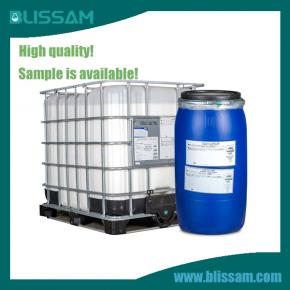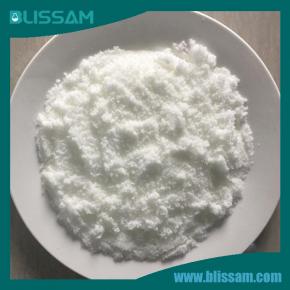In the realm of industrial applications, the choice of materials and additives can significantly impact the efficiency and quality of processes and products. Two commonly used substances in various industries are defoamers and silicone resins. While both play crucial roles, their applications and properties differ widely. BLISSAM, a leading provider of advanced chemical solutions, explores the best practices for using defoamers and silicone resins in industrial settings.
Defoamers, also known as anti-foaming agents, are chemical additives used to reduce and inhibit the formation of foam in industrial processes. Foam can cause numerous issues, including reduced process efficiency, equipment damage, and product defects. Defoamers work by destabilizing the foam bubbles, causing them to collapse and preventing further foam formation.

Defoamers can be broadly categorized into several types:
Oil-Based Defoamers: Typically made from oils like mineral oil or vegetable oil, often with added hydrophobic particles like silica.
Water-Based Defoamers: These are emulsions of oils in water, providing easy application and dispersion in aqueous systems.
Silicone-Based Defoamers: Made from silicone compounds, these defoamers are highly effective in low concentrations and can be used in a variety of applications.
Identify the Source of Foam: Understanding the cause of foam formation helps in selecting the appropriate defoamer. Factors such as agitation, temperature, and chemical composition of the system play a role.
Choose the Right Type: Select a defoamer that is compatible with the system’s chemistry and process conditions. Silicone-based defoamers are generally more versatile and effective across different environments.
Optimal Dosage: Use the minimum effective dosage to achieve desired results. Overuse can lead to process disruptions and increased costs.
Proper Application: Add defoamers at points where foam formation is most likely to occur, such as inlets of mixing tanks or before filtration units.
Silicone resins are a type of silicone polymer with a highly cross-linked three-dimensional structure. These resins are known for their excellent thermal stability, electrical insulation properties, and resistance to weathering, chemicals, and UV radiation. Silicone resins are widely used as coatings, adhesives, and encapsulants in various industrial applications.
Silicone resins can be classified based on their functional groups and cross-linking density:
Methyl Silicone Resins: Known for their heat resistance and electrical insulation properties.
Phenyl Silicone Resins: Offer superior weathering resistance and are used in high-performance coatings.
Alkoxy and Amino-Functional Resins: Used in applications requiring strong adhesion and flexibility.

Surface Preparation: Ensure that surfaces are clean and free from contaminants to achieve optimal adhesion and performance. Proper surface treatment can enhance the bonding strength of silicone resins.
Curing Conditions: Follow recommended curing conditions, such as temperature and humidity, to achieve desired mechanical and chemical properties. Proper curing ensures the formation of a durable and stable silicone network.
Compatibility Testing: Test silicone resins with other materials and substrates to ensure compatibility. This step is crucial in applications like coatings and encapsulants where different materials interact closely.
Storage and Handling: Store silicone resins in cool, dry conditions and use within the recommended shelf life. Proper storage prevents premature curing and degradation of the resin.
Defoamers are essential in industries such as:
Food and Beverage: Prevent foam during processing and packaging.
Pulp and Paper: Enhance pulp washing and paper formation processes.
Chemical Manufacturing: Control foam in reactors and during product formulation.
Wastewater Treatment: Reduce foam in aeration tanks and clarifiers.
Silicone resins find applications in:
Electronics: Used as encapsulants and coatings for protecting electronic components from moisture and contaminants.
Automotive: Employed in coatings and adhesives for high-temperature and weather-resistant applications.
Construction: Used in sealants, coatings, and waterproofing applications to enhance durability and performance of structures.
Textiles: Applied as coatings to improve fabric properties like water repellency and UV resistance.
Defoamers and silicone resins are vital components in various industrial applications, each offering unique benefits. By understanding their properties and best practices for use, industries can enhance efficiency, product quality, and operational stability. BLISSAM, with its expertise in chemical solutions, provides high-quality defoamers and silicone resins tailored to meet the specific needs of different industrial processes. Choosing the right product and applying it correctly ensures optimal performance and long-term benefits in industrial applications.
Contact:
Phone: +86-15957191858
E-mail: info@blissam.com
Whatsapp:+8615957191858
Add: A647, No. 9, Xiyuan Road, Xihu District, Hangzhou, Zhejiang, China
We chat
